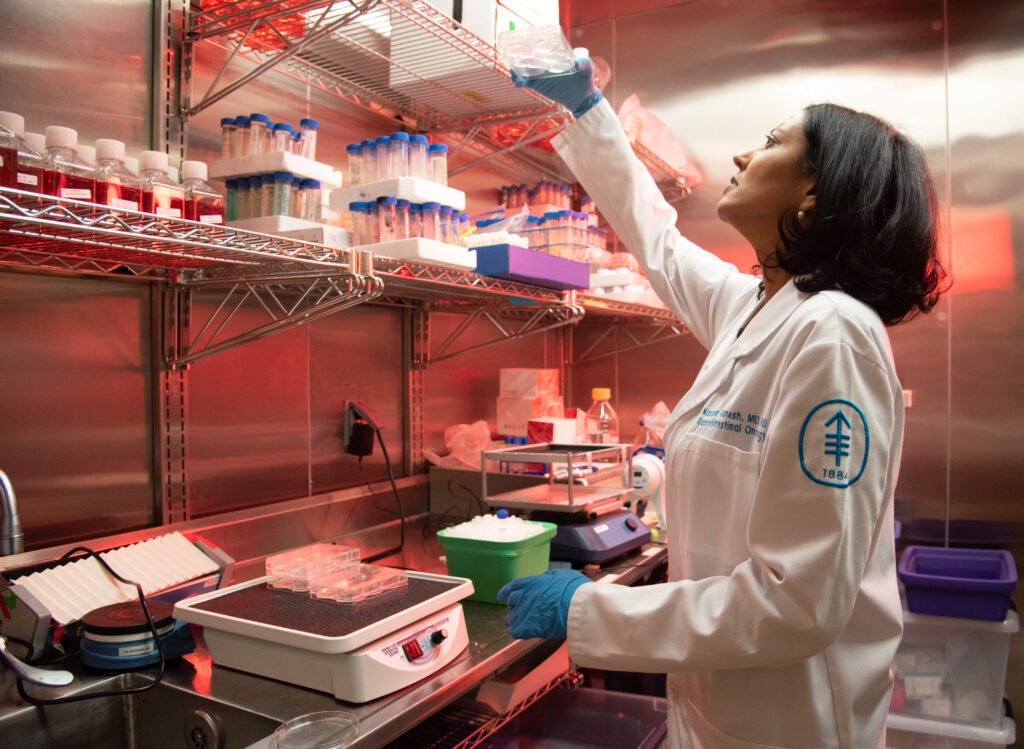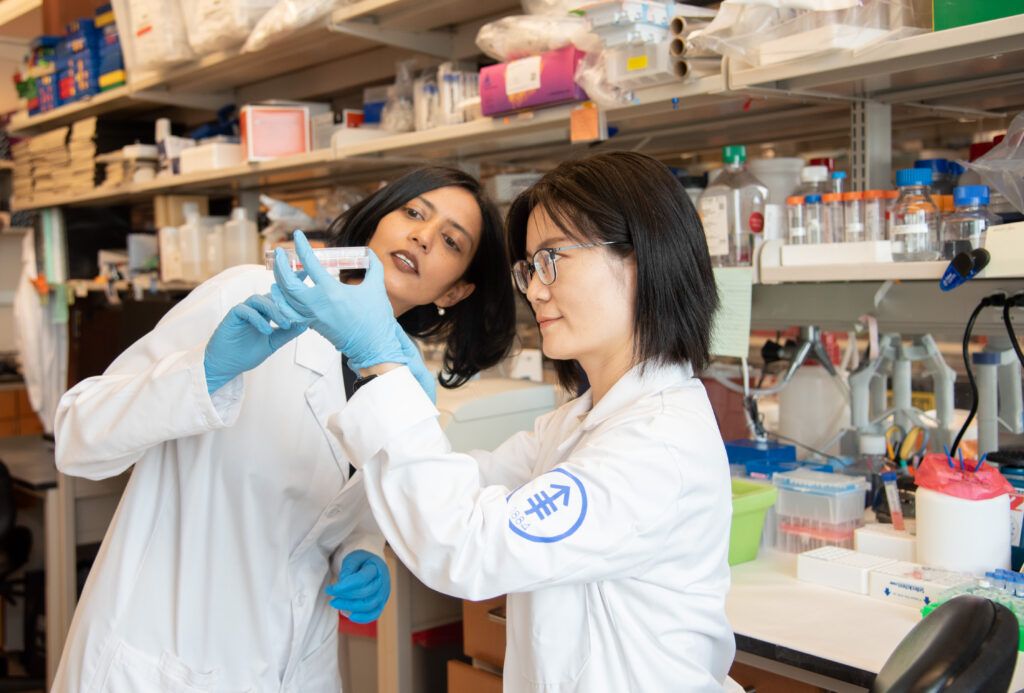Karuna Ganesh, MD, PhD ‹ Back To 2022 Winners
2022 Winners
Assistant Member
Molecular Pharmacology
Memorial Sloan Kettering Cancer Center
Vision
Metastasis, the ability of cancer cells to spread and grow in distant organs, remains the cause of >90% of cancer death. During metastasis, cancer cells must rapidly change the repertoire of genes they use in order survive disseminating through the circulation, immune surveillance and to adapt, regrow and resist therapy in distant organs. Such dynamic cellular adaptation, termed “plasticity”, is a major cause of therapy resistance, but how cancer cells undergo plasticity, is not understood. To understand metastatic plasticity, we have pioneered an integrated approach to study matched normal colon, primary colorectal cancer and metastatic colorectal cancer samples removed from patients at the time of surgery. These cells are grown as three-dimensional “organoid” cultures that retain patient-specific plasticity and drug sensitivity. By applying state-of the art single cell analysis, molecular biological and imaging techniques to these clinically relevant organoid models, we will uncover the mechanisms required for metastatic plasticity. The ultimate goal of our work is to identify novel approaches to limit or reverse plasticity in order to treat advanced cancer.
Karuna Ganesh, MD, PhD is a physician-scientist and Assistant Member at Memorial Sloan Kettering Cancer Center, in the Molecular Pharmacology Program and Gastrointestinal Oncology Service, and Director of Metastasis Research, Center for Colorectal Cancer. Originally from India, she completed high school at the United World College-USA in New Mexico, and then completed undergraduate and MD/PhD degrees from the University of Cambridge, UK as a Gates Scholar. During her PhD at the MRC Laboratory of Molecular Biology, UK, she studied mechanisms of antibody diversification with the late Professor Michael Neuberger. She trained in internal medicine at the Beth Israel Deaconess Medical Center/Harvard Medical School and in medical oncology at Memorial Sloan Kettering Cancer Center, where she completed a postdoctoral fellowship with Dr. Joan Massagué. Her independent laboratory, established in September 2019, studies mechanisms of regenerative plasticity in metastasis. She is the recipient of NIH/NCI K08 and R37 Awards, Damon Runyon Clinical Investigator Award, Burroughs Wellcome Career Award for Medical Scientists, AACR NextGen Grant for Transformative Cancer Research, Josie Robertson Investigator Award, is an Investigator of the Stand Up To Cancer Convergence Dream Team and NIH/NCI Human Tumor Atlas Network, and serves on the NCI Gastrointestinal Steering Committee Rectal-Anal Taskforce.
Decoding Dynamics of Cellular Plasticity in Colorectal Cancer Metastasis
 Despite advances in cancer therapeutics, metastasis, the ability of cancer cells to spread and grow in distant organs, remains the principal cause of cancer death. During metastasis, cancer cells must rapidly change the repertoire of genes they use in order survive the stresses of dissemination, immune surveillance and to eventually adapt to the new environment of the distant organ and grow. How cells undergo such cellular reprogramming, termed “plasticity”, is not understood.
Despite advances in cancer therapeutics, metastasis, the ability of cancer cells to spread and grow in distant organs, remains the principal cause of cancer death. During metastasis, cancer cells must rapidly change the repertoire of genes they use in order survive the stresses of dissemination, immune surveillance and to eventually adapt to the new environment of the distant organ and grow. How cells undergo such cellular reprogramming, termed “plasticity”, is not understood.
“The Pershing Square Sohn Prize will enable us to pursue our ambitious goal of studying how cancer cells reprogram themselves to spread to distant organs and resist therapy, directly in patient samples. By targeting factors required for such adaptability, we aim to improve outcomes for patients with advanced cancer.”
To understand metastatic plasticity, we have pioneered an integrated platform for the simultaneous single cell analysis and 3-dimensional “organoid” culture of matched trios of normal colon, primary colorectal cancer and liver metastasis surgically removed from patients. By applying state-of the art single cell analysis and imaging techniques to clinically relevant organoids we will uncover the mechanisms required for metastatic plasticity. In turn, this work could yield novel approaches to limit or reverse plasticity in order to treat advanced cancer.
“Innovation is fearlessness. By transcending conventional interdisciplinary boundaries and bringing together diverse ideas and approaches, we can transform how we think about, study, and treat cancer.”
